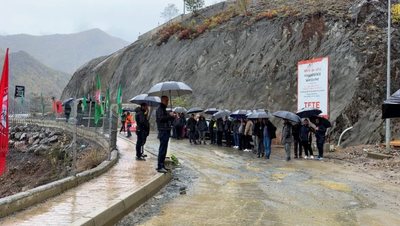
The risk is that Diella will remain, in the best-case scenario, an idea on paper and a very good public relations find, while the country's structural problems continue as they are...
The news that Albania created a ministerial post for Artificial Intelligence, with the appointment of Diella at its head, attracted the attention of international media, such as "Financial Times", "Euronews" and "Politico", placing our country at the center of a global debate regarding the issue of "technology serving people or people serving technology".
For a small country that is often overlooked on the international stage, this finding seems like an achievement in terms of image. But behind the enthusiasm, the question arises: can Albania translate this idea into concrete results?
The first challenge is institutional credibility. Albania remains among the countries with high levels of corruption and serious problems in transparency and accountability.
Artificial Intelligence is a powerful tool that can serve for efficiency and better services for citizens, but it can just as easily be used for excessive control and centralization of information in the wrong hands.
Another major obstacle is cybersecurity and data protection. Albania has experienced some of the largest hacking attacks in the region, with massive leaks of personal data.
It is enough to mention the dramatic failure of the state in the case of publishing the Tax database regarding individuals' salaries, to make you seriously reflect on these solutions.
In this context, the introduction of a large-scale AI-based system significantly increases the risk: citizens' data, processed and interconnected, could become easy prey for hackers, or be abused by the administration itself.
Without a strong legal framework and independent oversight institutions, there is a risk that the use of AI in administration will violate the privacy and security of citizens.
In addition, there is the challenge of technical capacity. Albania ranks among the countries with a low level of development in information technology.
There is a shortage of qualified experts, scientific research is limited, and universities are not yet closely connected to the needs of the digital market.
While countries like the United Arab Emirates, which have created something similar, rely on billions in investments in research centers, education, and international partnerships, Albania starts from a much more fragile base.
Before it can aim to be a global innovator, the country still has more fundamental problems to solve. Education is in crisis, with PISA results showing a significant decline and deterioration in the quality of students' knowledge. Without concrete support for education, innovation, and collaboration with the private sector, an AI ministry risks remaining just a label without substance.
In addition, we have the problem of fragmented digital governance. Many online public services, which are already offered to the public, are often unstable and slow, while citizens do not always have real access to information. The integration of AI requires clean, harmonized and accessible data, which is currently lacking.
Finally, from the public discussion, it seems that it is not yet clear how aware we are of the importance of solar data in decision-making. What risk and threat analysis matrix will be used?
In fact, the undisputed axiom, in the world of AI (and more broadly in that of IT), is “ Code was never found. It was only made, and made by us.” (Lawrence Lessig “Code 2:0”).
One of the main challenges of Artificial Intelligence globally is the issue of control over it. Currently, most systems are in private hands and managed by large technology corporations.
In non-democratic states, control often lies with authoritarian governments using technology as a tool for surveillance and political control. In Western democracies, there is a debate about whether these systems should remain under the supervision of the sovereign and his elected representatives.
In this context, Albania's step to establish a special ministry for AI is an innovation, but also a controversial choice.
Given the problems of democracy in the country, the risk is that control will not be guaranteed by Parliament or the citizens, but will be concentrated in the government and the groups that dominate it. Such a development would constitute a threat to a still fragile democracy like the Albanian one.
Against this backdrop, “Government AI” is a bold step, but also a challenge. The foreign media that this year sees Albania as a pioneer, tomorrow will be the same ones that will demand accountability for the results. The questions that will be asked are simple: has this solution improved services for citizens? Has it helped reduce corruption?
Albania has the opportunity to turn this initiative into a success story, but this depends on awareness of the issues that this choice brings with it and the approach to them, political will, building technical capacities, and ensuring transparency.
If these are missing, the risk is that Diella will remain, in the best-case scenario, an idea on paper and a very good public relations find, while the country's structural problems continue as they are. / Taken from Monitor






















